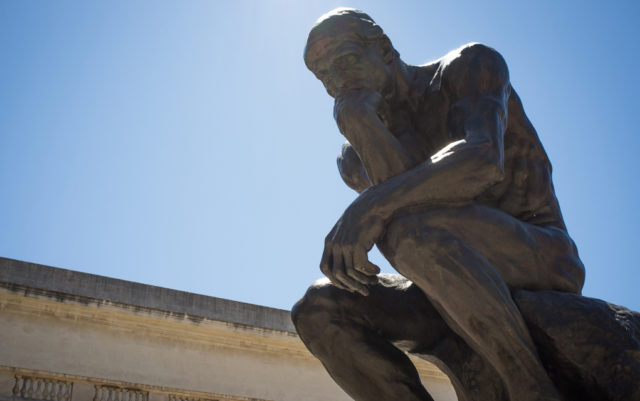
The not-new but increasingly popular practice of administering psychotropic substances to treat psychological and psycho-spiritual concerns is finding unprecedented success in affecting stubborn diseases like addiction, depression and anxiety with a single dose. That they are effective is becoming broadly accepted in the scientific community and, thanks to increasing funding for research, we are beginning to understand how. But why these substances right our relationship with ourselves remains a mystery.
According to academic philosopher Philip Gerrans, who has been researching self-representation in psychiatric disorders, “we know quite a lot about the neurochemistry of psychedelic drugs and how they work on the brain. What’s poorly understood is the more complex relationship between the brain, our sense of self and how we perceive the world.” A philosophical quandary indeed.
In recently published articles in Neuroscience of Consciousness and Aeon, Gerrans and co-author Chris Letheby suggest that psychedelic drugs “make us better” because they “violate our ideas about ourselves.” Which is to say they work by dissolving the self itself.
To understand what this means we have to go back to the father of Western philosophy, Rene Descartes, and his famous words “I think therefore I am.” Fundamentally this is a declaration of the self, one of an immaterial soul that knows itself through its changing circumstances, made known to us by our emotional, mental and physical senses.
It is a compelling idea, but one that modern neuroscientists mostly reject. Having moved beyond the idea of an immaterial soul, Cartesian philosophy is now viewed as nothing more than a convenient fiction. Anyone who has consumed a substantial dose of psychedelics or cannabis can testify to the dissolution of the notion of an immaterial soul as their ego dissolves and the self ceases to serve as a useful touchstone.
Alternatively there is the philosophy of David Hume, who theorizes that the self is nothing more than whatever it is that holds together our string of experiences — like an Instagram handle ties together a feed of pictures of memories and cats. But, according to Hume, that handle isn’t a substantial self, but rather a mere point of connection. According to Hume, there is no soul.
So is there a self or isn’t there? If not, who or what is it that is reading and processing the words on this page? Emerging neuroscience, combined with psychedelic research, is finally putting scientists “in a position to watch the sense of self disintegrate and reintegrate — reliably, repeatedly and safely, in the neuroimaging scanner.”
What is being revealed is that while the self-model plays an important binding function in cognitive processing, the self does not exist. Increasingly, researchers think that our minds create our experiences through models of predictive processing (much like a computer-simulated world).
It turns out we see ourselves the same way we see through our physical eyes: signals enter the eye and are processed by the mind only to be constructed, layer-by-layer, into a consensual reality and a subjective self. But there is too much information to be processed intelligibly (not to mention usefully) and so the brain uses predictive tools to build our worlds — psychologically these tools are states of mind like addiction, depression and anxiety.
“People who go through psychedelic experiences no longer take it for granted that the way they’ve been viewing things is the only way,” Dr. Letheby said in a press release. “Psychedelics can assist in enlightening people about the processes behind their subjectivity. This is called ego-dissolution and it offers vivid experiential proof not only that things can be different, but that there is an opportunity to seek change.”
Lately there has been a lot of buzz about psychedelic miracles. It’s not that drugs themselves are miraculous, but that they allow for self-transcendence and make room for people to experience profound and boundless connections with the world they inhabit. It’s as if they are seeing the world for the first time and in that moment are experiencing, in the words of Aldous Huxley, “what Adam had seen on the morning of his creation — the miracle, moment by moment, of naked existence.”














